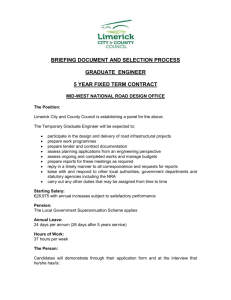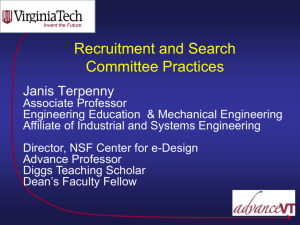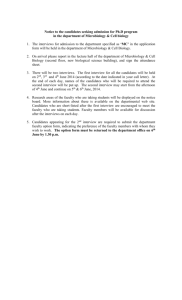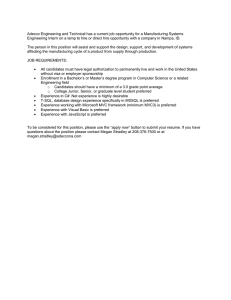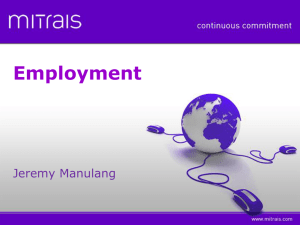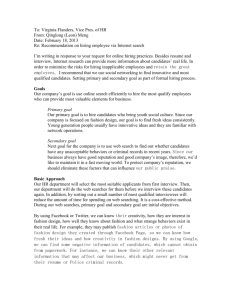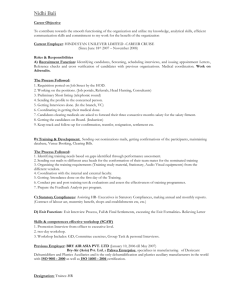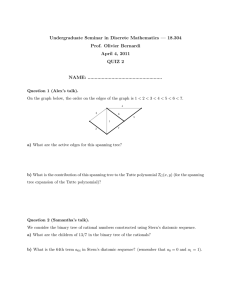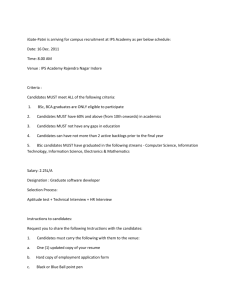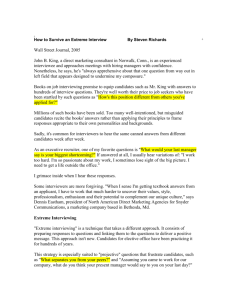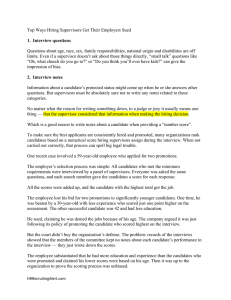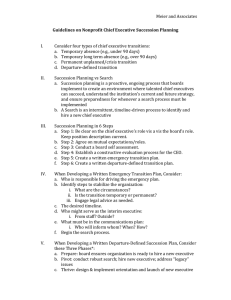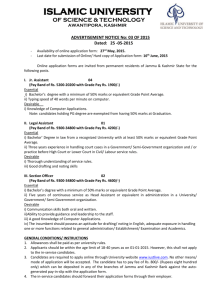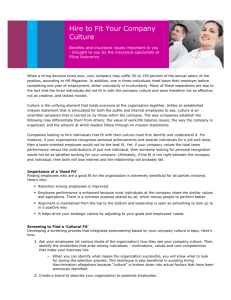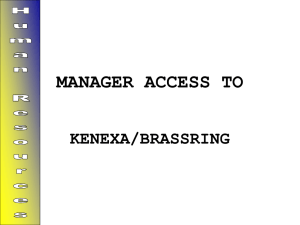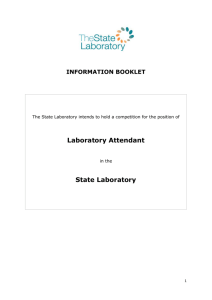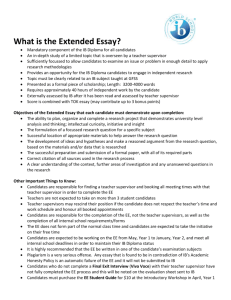Presentation - St. Cloud State University
advertisement
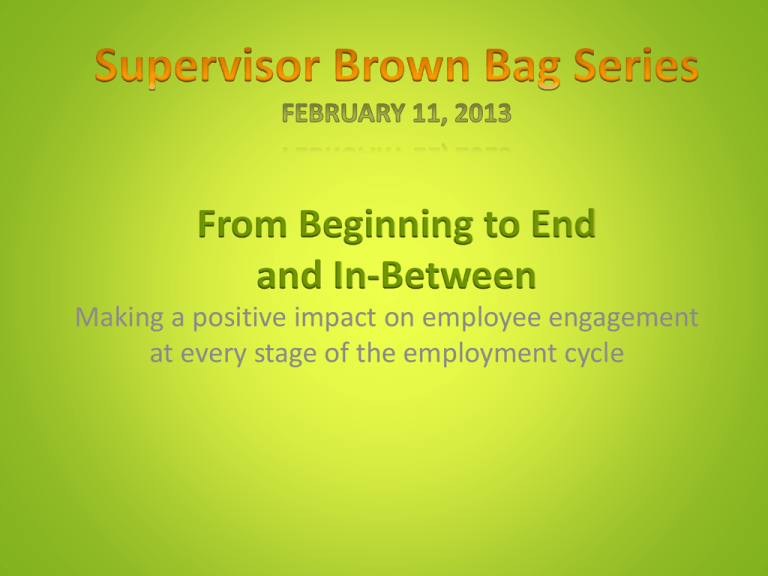
From Beginning to End and In-Between Making a positive impact on employee engagement at every stage of the employment cycle What is engagement? Engagement is the process of leading people by enabling them to want to do whatever is necessary to ensure the continuous high performance and success of the organization. Scarlett Surveys International The Three Types of Employees 1. Engaged: Employees work with passion and feel a profound connection to their company. They drive innovation and move the organization forward. 2. Non Engaged: Employees are essentially “checked out.” They’re sleepwalking through their workday, putting time—but not energy or passion—into their work. 3. Actively Disengaged: employees aren’t just unhappy at work: they’re busy acting out their unhappiness. Every day, these workers undermine what their engaged coworkers accomplish. Supervisors are …when it comes to employee STEPS OF THE PERFORMANCE MANAGEMENT PROCESS: Position Descriptions • Importance of accurate PD’s – are you sure you know what you are looking for? • Beware of the pendulum effect Why diversity matters – not just a federal obligation • Hiring the right person is the most important thing we do as supervisors • It’s less costly to have a vacant position than to hire the wrong person • Get the right people on the bus…and in the right seats • Where to find step-by-step recruitment instructions: – Office of Human Resources Website under “Policies and Procedures” http://www.stcloudstate.edu/humanresources/policies/default.asp – Also “Employment Procedures and Practices” website http://www.stcloudstate.edu/employeeprocedures/default.asp#foreward • Distribute job announcements to unit employees requesting referrals • Make personal contacts • Network to recruit passive job seekers • Advertise in trade journals and professional associations • Consult with HR or EAA on other strategies to reach your target audience • Understand the skills, education and experiences that are essential to success in the position • Be honest about the nature/environment of the job • Do not make assumptions…people will surprise you • Real life exercises can be helpful…think outside of the normal formal Q&A structure • Ask open-ended and behavior-based questions • Get perspectives from others who have a stake in the hire • Make candidates as comfortable as possible during the interview • Keep an open mind • Be conscientious of the impression that you give candidates of the university – Give candidates an opportunity to ask questions…this is their interview too • Take good notes • Check references – Speak with candidates’ current and former supervisors – Think carefully about the questions you want to ask – Be sensitive to candidates – inform them when/who you plan to interview • Follow up with non-selected individuals • Announce the appointment • Assess your work environment - prepare the current office staff for the new employee’s arrival (get them excited) • Review the SCSU Supervisor Checklist • More than the I-9 and W-4 • Ensure space/resources are set up for Day 1 • Block off time in your schedule Week 1 to spend with your new hire • Have a plan for important professional development activities and ensure that the employee has sufficient time to complete training

